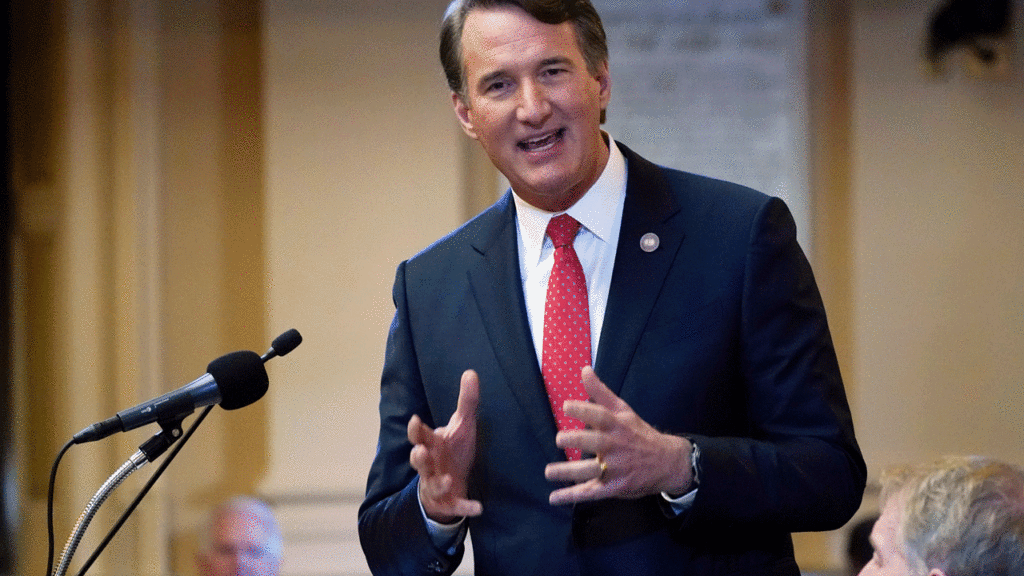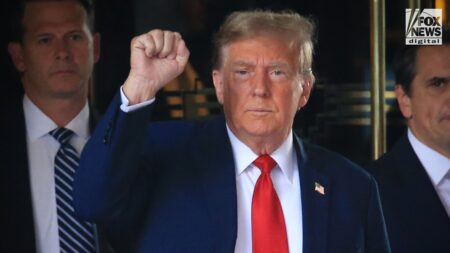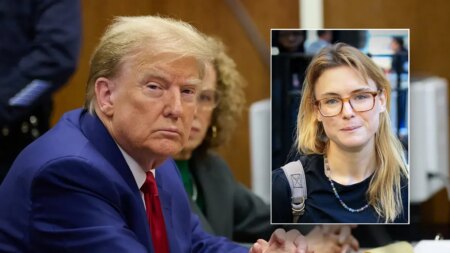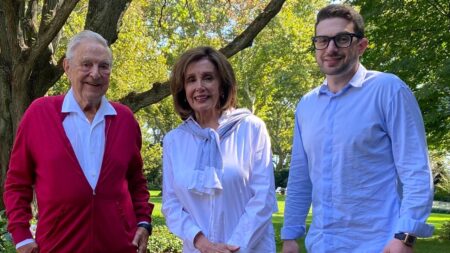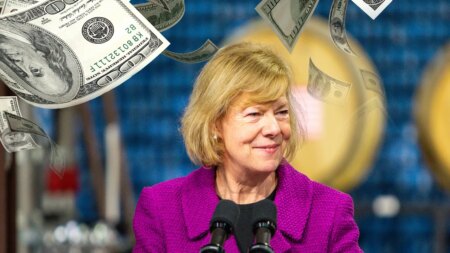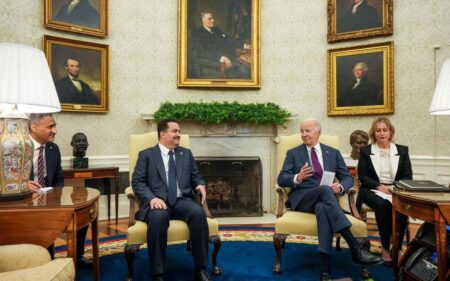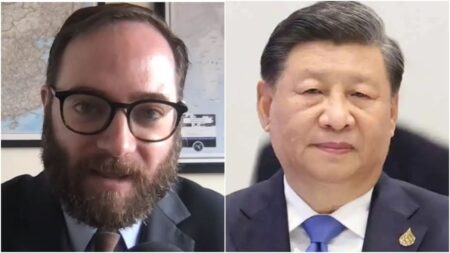RICHMOND, Va. (AP) — The budget the Democratic-led Virginia General Assembly passed last week is a “broken” plan that would impose a $2.6 billion tax hike over two years, Gov. Glenn Youngkin said Thursday, announcing he had asked lawmakers to work with him on revisions.
Youngkin, who said he hoped to avoid vetoing the budget as a whole, called on Democratic leaders to “get around the table” with his administration to refashion a plan that axes a proposed new sales tax on digital goods and makes corresponding spending cuts to account for the revenue reduction. Youngkin suggested he could then submit compromise amendments to the budget for a General Assembly vote in April, when lawmakers reconvene next.
VIRGINIA GOVERNOR CALLS PRO-PALESTINIAN PROTEST THAT DISRUPTED INTERSTATE TRAFFIC ‘UNACCEPTABLE’
“So that’s the work we’ll do over the course of the next three weeks in order to come up with a budget that does not have tax increases in it and make sure that we’re funding our key priorities,” Youngkin said.
He also made clear he would keep pushing to advance another priority lawmakers have so far rejected — a $2 billion development district with a new arena backed partly by public dollars and intended to lure the NBA’s Washington Wizards and the NHL’s Washington Capitals to Alexandria.
Youngkin’s remarks, which came during a campaign-style appearance at a Richmond-area restaurant filled with supporters, were the most extended he’s given on the budget since lawmakers adjourned their annual session Saturday after passing the spending plan for the next two years and a bill that makes adjustments to the existing budget.
Democrats have defended their budget proposal, which passed with some Republican support, as focused on the needs of working families and Virginia’s public education system.
The plan “was on time, it was balanced, structured, consistent with Virginia traditions, invested more in K-12 and advanced the priorities of Virginians we’re working for,” Senate Majority Leader Scott Surovell said Saturday.
But Youngkin called the plan “broken” and argued it would take Virginia “backward” after bills signed in the previous two years enacted a combined $5 billion in tax cuts, some through one-time rebates.
“They want to put their hand in your pocket and take your money that you deserve to keep and go do pet projects with it,” said Youngkin, who initially introduced the idea of the expanded sales tax in December but did so coupled with a cut to the income tax rates, resulting in a budget plan he said would reduce taxes overall.
Lawmakers also included language in their budget legislation directing Virginia to rejoin the Regional Greenhouse Gas Initiative, a multistate carbon cap-and-trade program intended to reduce power plants’ carbon emissions. A regulatory panel removed the state from the program under Youngkin’s direction in a move that’s being challenged in court.
The governor argues the program has functioned as a tax on Virginians because utilities can at least partly recover the compliance costs from ratepayers.
The combination of the cost of rejoining the initiative along with the proposed new tax on digital goods, which lawmakers expanded to include business-to-business transactions as well, would amount to $2.6 billion over two years, said Youngkin, who made clear he wants both components removed from the bill.
“We will not have a tax increase,” he said.
Democratic Del. Luke Torian, who chairs the House Appropriations Committee and is the top budget negotiator for his chamber, said in an interview Thursday evening that Youngkin had requested a meeting with legislators and that work was under way to find a date.
Torian said he would otherwise reserve further comment on the governor’s speech or his own position on the negotiations until he’d had the chance to discuss the matter with Youngkin.
Democratic Sen. L. Louise Lucas, Torian’s Senate counterpart and a sharp critic of the governor, didn’t immediately weigh in on Youngkin’s remarks but took a jab at the proposed arena deal on social media and in emails on which she copied reporters. She has been the Assembly’s leading opponent of the proposal, which Youngkin unveiled in December, and has effectively defeated standalone legislation underpinning it and blocked its inclusion in the budget legislation.
“The GlennDome is done,” she wrote in one of the emails, using her nickname for the project.
Youngkin, who noted he could insert arena language back into the budget bill, told reporters he hoped the Senate would give the proposal a more thorough vetting.
“The Senate has to engage,” he said.
Separately Thursday, Youngkin announced he had vetoed 20 bills, on top of eight others he shot down last week.
In a statement, his office said the measures “would impose significant burdens on small businesses, limit statewide decision-making, and escalate tuition fees and expenses for hardworking Virginia families.”
Among those vetoed was a bill that would have made Virginia the 49th state in the country to allow class-action lawsuits, Surovell said on social media.
Another sponsored by Democratic Sen. Jennifer Boysko would have prohibited employers from seeking the wage or salary history of a prospective employee or relying on that information in determining wages or salary. Boysko has argued such legislation would help narrow the wage gap for women and minorities.
Lawmakers sent Youngkin over 1,000 bills during the course of the 60-day legislative session. Legislators will meet April 17 to consider his proposed amendments to the budget and other legislation. They can also attempt to override his vetoes, which would require Republicans to join with the narrow Democratic majorities to reach a two-thirds vote threshold.
Read the full article here




